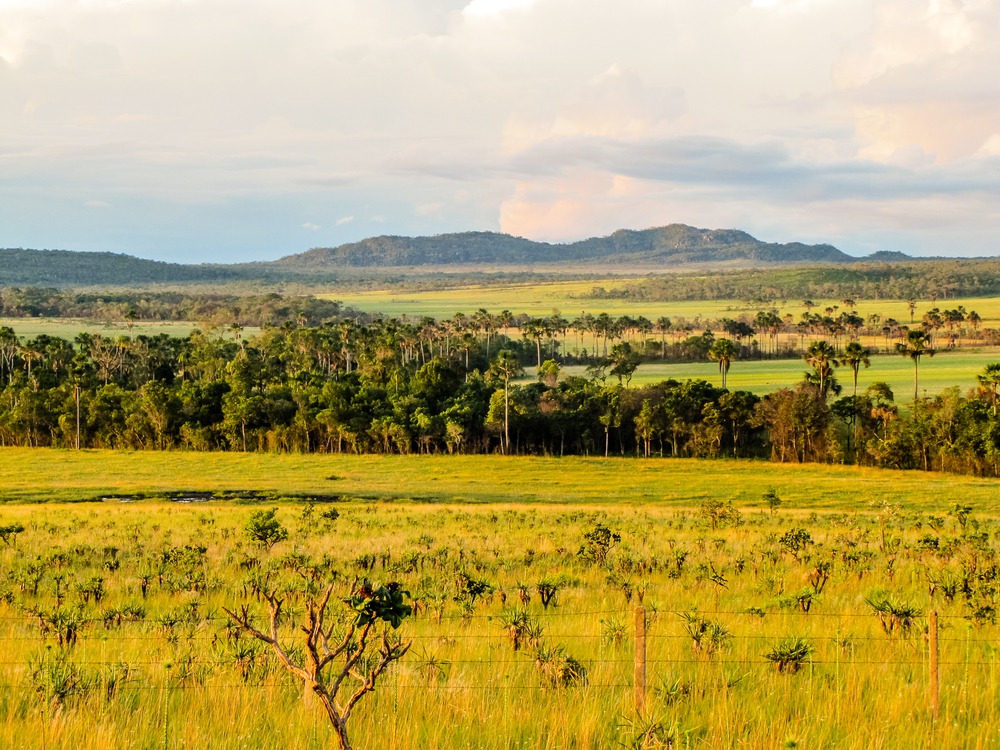Editor’s Note: Aarti Ramachandran is head of research & corporate engagement at FAIRR, an $8 trillion investor network that recently released the Cerrado investor statement regarding deforestation of the Brazilian region. Here Ramachandran explains more.
Could one of the unintended victims of the escalating US-China trade war be the wooded grasslands of the Cerrado region in Brazil – a vast forested savannah located next to the Amazon?
Earlier this summer, China slapped a 25% tariff on US soybean producers, a move likely to lead to China importing more soy from Brazil and increasing the pressure for further deforestation in the country. That is concerning for the Cerrado, an area the size of Mexico, which has become one of the most threatened ecosystems on the planet due to the rapid expansion of agribusiness in the region. It is estimated that around 50% of the Cerrado’s forests and native vegetation has already been cleared for agricultural expansion.
However, as pressure to clear more Brazilian forest builds on the ground, an influential group of investors, as well as food companies at the end of the supply chain, are working together to halt deforestation in the Cerrado.
This month, institutional investors managing over $5 trillion in assets, including giants such as Legal and General Investment Management (LGIM) in the UK and APG in the Netherlands, joined companies including Tesco, McDonald’s, and Walmart to sign a Statement of Support for the ‘Cerrado Manifesto.’ The statement sends a clear market signal that there is strong demand for zero-deforestation food products.
Why investors and agriculture companies care about Cerrado
For large investors, and the agribusiness companies they invest in, deforestation creates a wide set of regulatory, operational and market risks.
Sectors ranging from food and beverages to biofuels depend heavily on commodities such as cattle, soy and palm oil, all of which are heavily exposed to deforestation risks. In fact, a 2017 report by environmental non-profit CDP found that as much as $941 billion of turnover in publicly listed companies is dependent on commodities linked to deforestation.
This year we’ve seen examples of these risks becoming reality. In the last six months, several grain trading houses including Bunge and Cargill were reportedly fined $29 million for deforestation-related activities, including in the Cerrado. On the regulatory risk side, we have seen EU negotiators agree to phase out the use of palm oil in transport fuels by 2030, creating significant impact on palm oil producers.
The contribution of deforestation to climate change also presents a market-wide risk. Forest degradation accounts for approximately 10% to 15% of the world’s greenhouse gas emissions. With the Paris Agreement, combatting climate change is now at the top of the global agenda. This means that industries driving deforestation – such as those catering for the large soy demand of the global livestock sector – could face severe risks from future regulation.
Applying pressure on the ground, and across the market
For many of the investors and companies involved, the challenge is both local and global.
In the case of Cerrado, companies have already identified over 38 million hectares of alternative available land in the region where soy production can sustainably expand. So, the local challenge is to convince agribusinesses on the ground to grow in these areas, without the need for any further loss of forest assets.
Beyond Cerrado, there is also a real challenge for the agriculture sector to improve its management and reporting on deforestation risks.
An ESG risk assessment of 60 of the largest listed global livestock and aquaculture companies by the Coller FAIRR Protein Producer Index released earlier this year found that 84% of the companies in the Index do not have policies to address deforestation risk. Just one example of this is that all 16 China-based companies in the Coller FAIRR Index were ranked ‘high risk’ on deforestation risk – a worrying finding given the prospect of China potentially importing much more Brazilian soy.
Now investors such as LGIM are actively engaging with some of the world’s biggest food retailers and producers to ask them to disclose both their exposure to forest risk commodities and how they are managed.
That is a big challenge to the agriculture sector but one that they must respond to if both ecosystems such the Cerrado, and the long-term returns of their shareholders, are to be protected.





